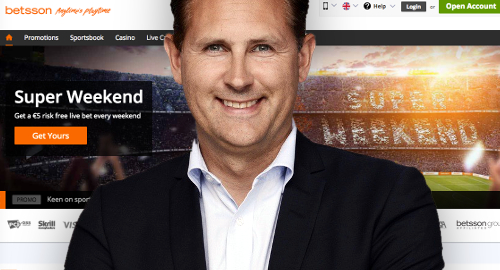 Nordic online gambling operator Betsson AB has abruptly parted ways with its CEO, reportedly due to a disagreement over the company’s black-market operations in Turkey.
Nordic online gambling operator Betsson AB has abruptly parted ways with its CEO, reportedly due to a disagreement over the company’s black-market operations in Turkey.
On Monday, Betsson issued an official statement saying its board of directors and CEO Ulrik Bengtsson (pictured) had agreed that Bengtsson “shall leave the position as President and CEO” of the company. The notice added that Bengtsson “has chosen to leave his position immediately.”
Betsson’s board has appointed chairman Pontus Lindwall as its temporary CEO until it can find a permanent replacement. Lindwall was Betsson’s CEO until March 2016, when Bengtsson assumed the CEO mantle and Lindwall shifted to chairman.
Board member Patrick Svensk will assume the chairman’s role until further notice, while Betsson’s chief commercial officer Jesper Svensson has been appointed acting CEO of Betsson’s Malta subsidiary.
While the company offered no clues as to the reason behind Bengtsson’s abrupt departure, Swedish media outlet SvD Nüaringsliv quoted Bengtsson saying he and the board “have different views on some priorities ahead” and “it’s better to go different directions.”
eGaming Review reported that Bengtsson and Betsson’s board had clashed over the future of the company’s Turkish-facing business. In 2010, Betsson sold its Turkish client list to Malta-licensed Realm Entertainment, with which it struck a B2B partnership.
Turkey was once Betsson’s biggest single market, but contributions from its Turkish partner have faced increased regulatory threats, including a vow in July by Turkey’s government to launch a new two-year anti-gambling campaign targeting both land-based and online offenders.
Bengtsson reportedly also had issues with Betsson’s board over the company’s acquisition strategy. Betsson has dramatically boosted its brand portfolio in the past year via the acquisition of the UK’s NetPlay TV, Germany’s RaceBets and Spain’s Premier Casino (since relaunched as StarCasino.es). These acquisitions were credited with boosting Betsson’s Western European market revenue by 69% in Q2 2017.